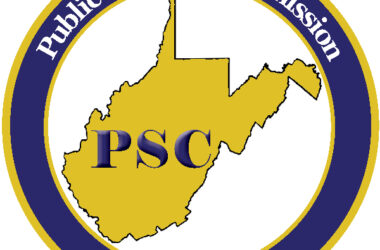By Autumn Shelton, West Virginia Press Association
CHARLESTON, W.Va. – The House Finance Committee advanced a bill on Wednesday that would increase compensation for guardians ad litem, appointed attorneys who may serve in the best interests of a minor child, as well as a bill to provide property tax credits for critical materials manufacturers.
Up first for discussion was the committee substitute for HB 5065, which would increase the compensation for panel attorneys who serve as a legal counsel or guardian ad litem for a minor child in a child abuse or neglect proceeding.
According to counsel, this bill would increase the out of court compensation rate from $60 per hour to $105 per hour. Out of court work includes travel, client and witness interviews, preparation of pleadings, and prehearing or pretrial research.
The bill also increases the in court compensation rate from $80 per hour to $125 per hour, and states that in court work includes “time spent awaiting hearing or trial before a judge, magistrate special master, or other judicial officer.”
Following an amendment to the bill, the term “multi-disciplinary team meetings” was added to the list of in court work.
Additionally, the bill states that guardians ad litem who have been appointed to represent a minor child in a settlement proceeding may be “reimbursed for any actual and necessary expenses incurred in performance of their duties” and compensated at a $200 per hour rate. This compensation rate would begin on July 1, 2024.
The bill also states that a court “shall only appoint a guardian ad litem that has received and completed all required continuing education” to serve in that position.
A fiscal note states that HB 5065 would create a yearly state general revenue expense of $4,547,038.
A memorandum with the fiscal note states that one concern arising from passage of this bill may be “the potential drain of the pool of attorneys for other legal services that will not be compensated as highly. Judges throughout the state are struggling to find attorneys willing to take appointments in criminal or post-conviction proceedings or to represent parents in child abuse and neglect proceedings.”
Next, the committee advanced the committee substitute for HB 5441. This bill is similar to SB 544, which passed the Senate on Feb. 14, and would increase the threshold of bids for municipal public works projects from $25,000 to $50,000.
Lastly, the committee advanced HB 4971.
According to counsel, this bill would provide property tax relief to companies who process or manufacture critical materials that have been deemed by the federal government to serve an essential function in one or more technologies.
“The tax relief is intended to encourage the manufacturing of these materials in the state by retaining and attracting companies to come here and do business,” counsel stated.
In July 2023, the bill states, the United States Secretary of Energy reported critical materials to include aluminum, cobalt, copper, dysprosium, electrical steel, fluorine, gallium, iridium, lithium, magnesium, natural graphite, neodymium, nickel, platinum, praseodymium, silicon, silicon carbide and terbium.
These materials are not “rare earth elements,” counsel explained. Instead, they have a high risk of supply chain disruption. The list may be amended over time.
The committee substitute of the bill was “prepared to narrow the definition of critical manufacturing equipment,” counsel said. “It’s currently being narrowed down to only that equipment that makes raw materials.”
According to the bill, for all assessments made after July 1, 2024, “the value of critical material manufacturing equipment, for the purpose of ad valorem property taxation . . . shall be its salvage value, being no more than five percent of its fair market value.”
The tax commissioner will have rulemaking authority to establish salvage valuation, counsel said.
These bills are now headed to the full House for consideration.






